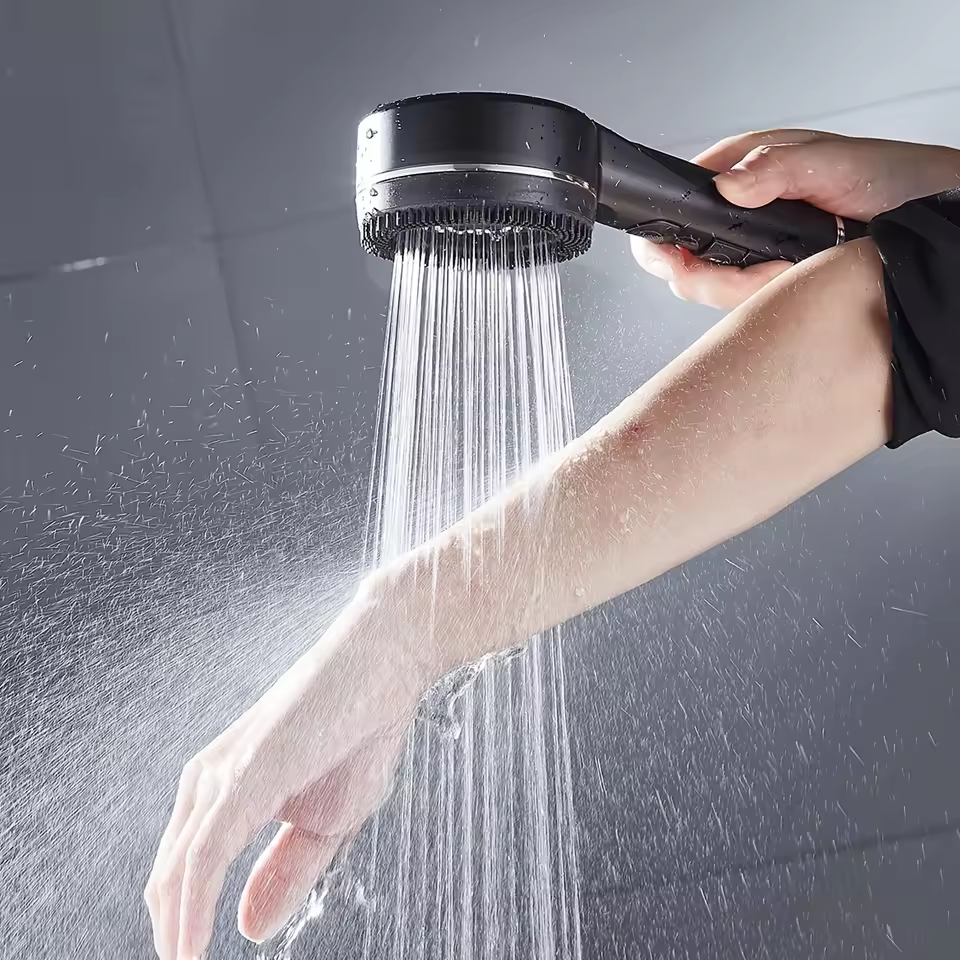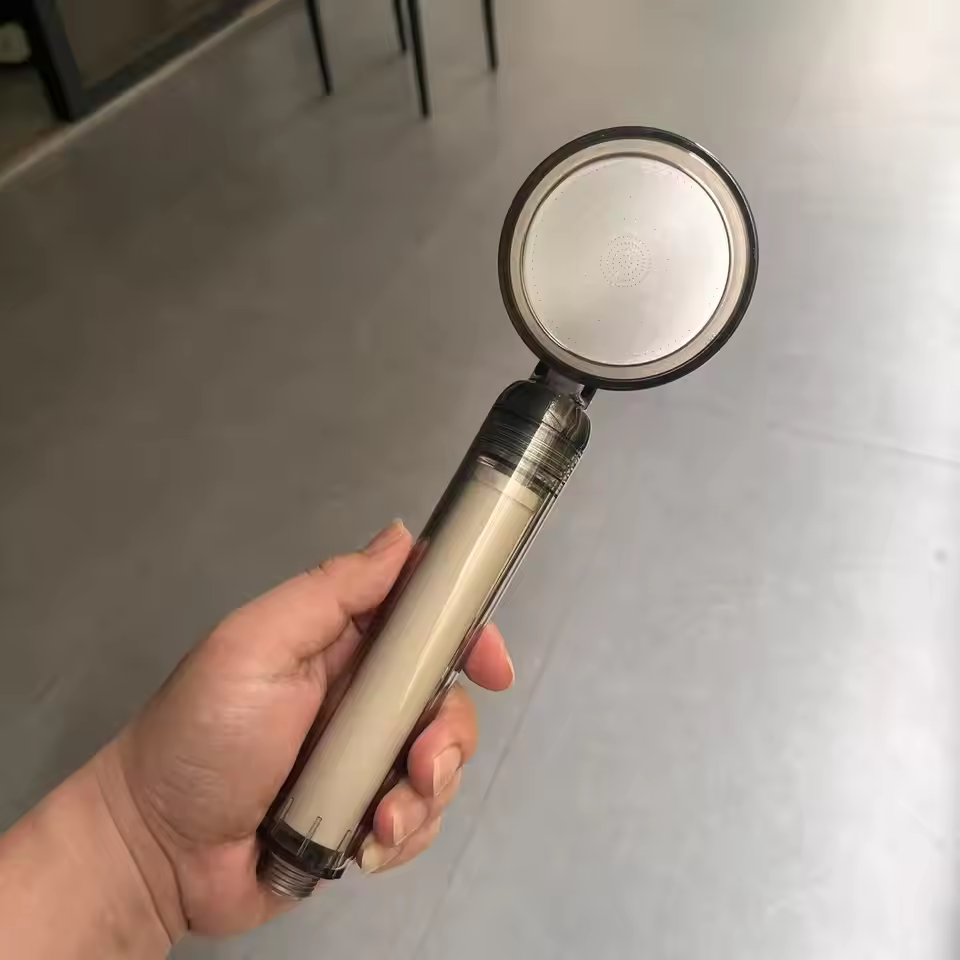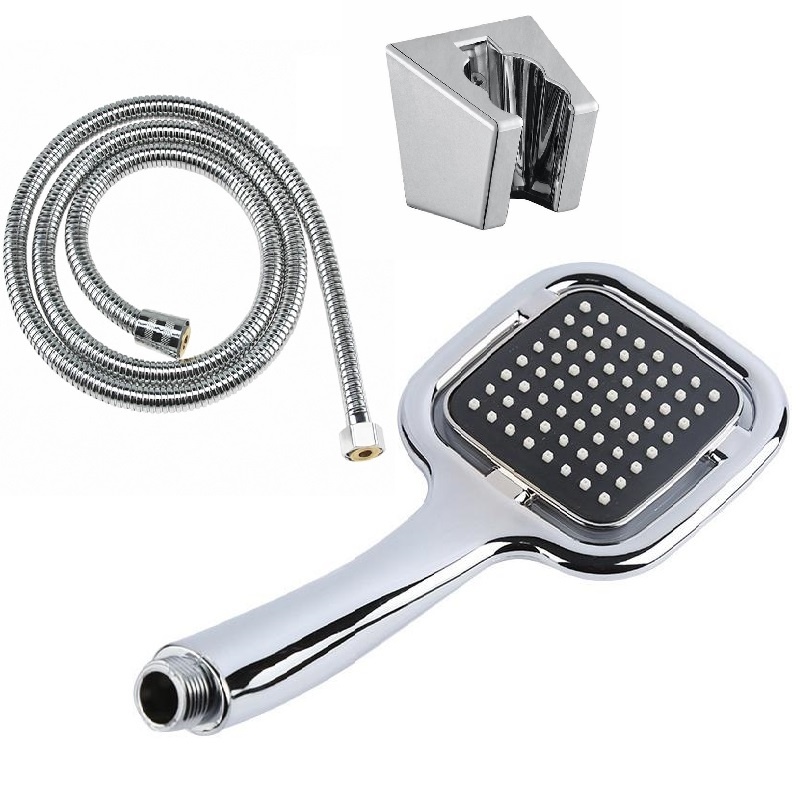The Importance of Shower Head Filters for Hard Water
Hard water can be a nuisance in your daily shower routine. It contains high levels of minerals, such as calcium and magnesium. These minerals can build up on your skin, hair, and shower surfaces. They can cause dry skin, dull hair, and leave hard-to-clean residues. That’s where a shower head filter for hard water comes in.
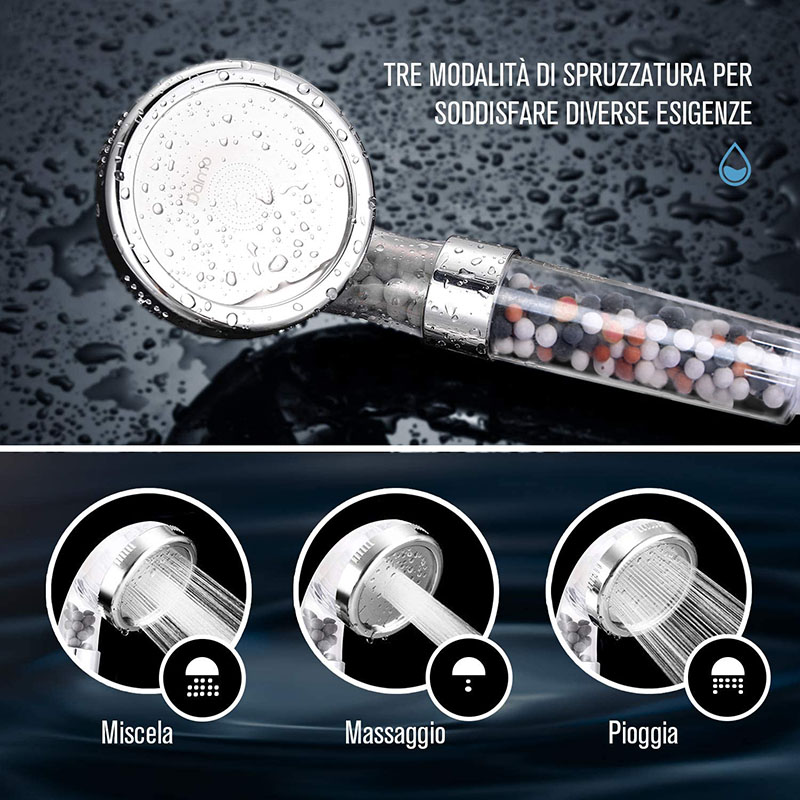
Using a filter helps remove these minerals. It ensures that the water hitting your body is cleaner and gentler. This leads to softer skin and shinier hair. It also means less scrubbing when cleaning your shower. In areas with hard water, a shower head filter is not a luxury. It’s a necessity for maintaining personal and home hygiene.
Furthermore, filters also help with the lifespan of your shower accessories. By filtering out minerals, they prevent build-up in the pipes and on the shower head. This means fewer blockages and less wear and tear. In the long run, this can save you money on plumbing and replacements.
Investing in a shower head filter for hard water is the first step towards a healthier shower experience. It ensures that every shower leaves you feeling refreshed and protects your home from the effects of hard water.
Key Benefits of Using a Filtered Shower Head
Incorporating a shower head filter for hard water in your bathroom comes with numerous advantages. Here’s a concise overview of the key benefits:
- Improved Skin Health: A filtered shower head minimizes exposure to harsh minerals. This can prevent skin dryness and irritation, leading to more comfortable and healthier skin.
- Enhanced Hair Condition: Just like your skin, your hair suffers from hard water. A filter can help in reducing mineral deposits, leaving your hair softer and less prone to damage.
- Extended Shower Accessory Life: By filtering out minerals, the risk of clogs and buildup on your shower head is reduced. This prolongs the life of shower accessories and keeps maintenance costs low.
- Better Water Conservation: Some filters are designed to regulate water flow. This can lead to lower water consumption without compromising on your shower experience.
- Environmental Friendliness: With fewer minerals in the water, there’s less residue left behind. As a result, you’ll need fewer cleaning products, which often contain harmful chemicals, thus reducing environmental impact.
- Energy Efficiency: Heated water flows more efficiently through filtered shower heads, potentially leading to reduced energy bills as less heat is lost.
- Consistent Water Pressure: Without mineral blockages, filtered shower heads can maintain steady water pressure, enhancing your shower experience.
Ensure your bathroom’s filtered shower head for hard water aligns with these benefits to maximize its effectiveness and improve your daily routine.
Types of Shower Head Filters for Hard Water
When choosing a shower head filter for hard water, you’ll encounter various types. Learning about each can help you make the best choice.
- Sediment Filters: These remove larger particles like sand and dirt. They’re often made of woven fabrics or foam.
- Carbon Filters: Carbon filters can reduce chlorine, pesticides, and bad odors. They’re not as effective against mineral hardness, though.
- KDF Filters: Kinetic Degradation Fluxion (KDF) use copper and zinc to reduce chlorine, lead, and bacteria. They also tackle some of the minerals that contribute to hardness.
- Vitamin C Filters: These can neutralize chlorine and are said to improve skin condition. However, their effect on hard minerals is minimal.
- Resin Filters: Resin-based filters exchange sodium ions for hard water minerals. They soften the water effectively.
- Dual-Stage Filters: Dual-stage filters combine methods, like carbon and KDF, for broader filtration.
- Shower Filter Attachments: Attachment filters are added to existing shower heads. They offer a quick fix but may not reduce hardness as efficiently.
Before you decide, think about your needs. Hard water demands filters that can handle minerals effectively. Carbon filters alone might not be enough. Resin or KDF might work better. Dual-stage filters could offer the most comprehensive solution.
Choose with care. A suitable filter will revive your showering experience and help keep your bathroom sparkling clean.
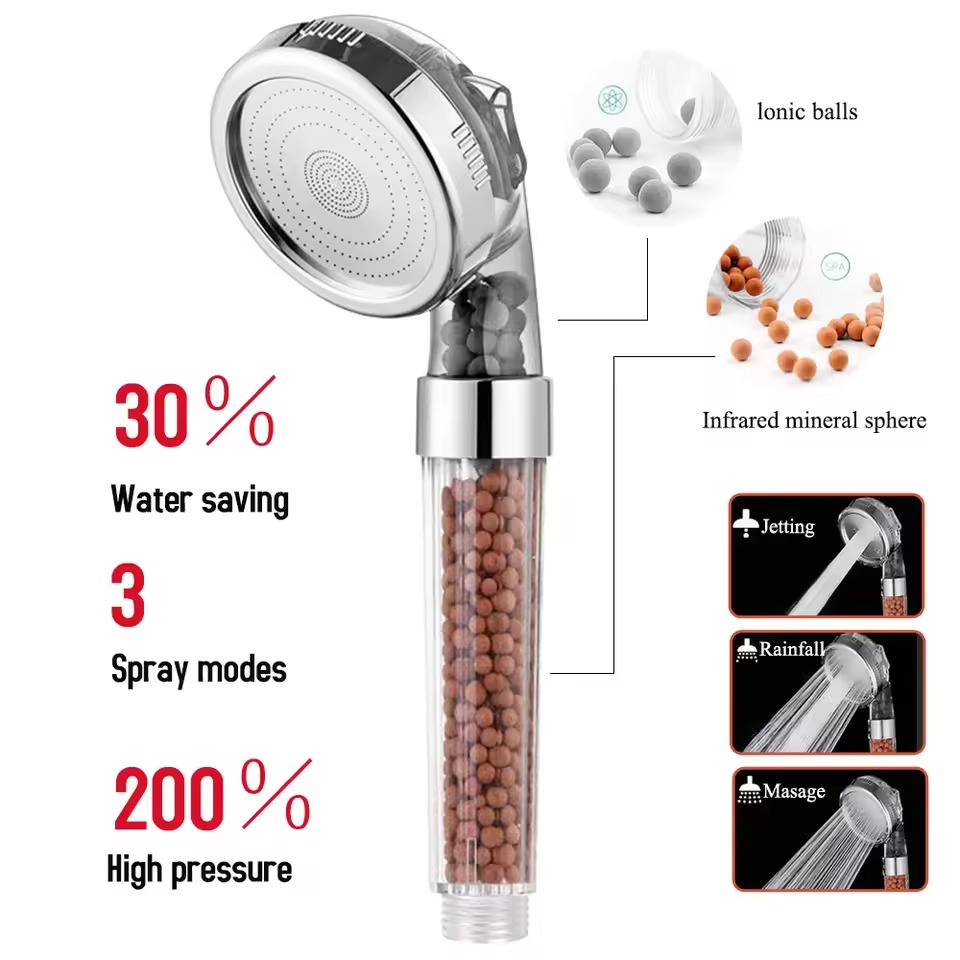
How to Choose the Perfect Shower Head Filter
Choosing the right shower head filter for hard water can be crucial. Here are simple steps to follow to ensure you make an informed decision:
First, assess your water quality. Get a test kit and identify the minerals in your water. Knowing the levels of calcium and magnesium helps determine the harshness of your water.
Second, consider the filter types. Review the types listed in the previous blog section. Match your water quality with the filter’s capabilities. Resin and KDF might best handle high mineral levels.
Third, look for quality certifications. Choose filters with NSF/ANSI certifications. They meet certain health and safety standards.
Fourth, read reviews and feedback. Look for products with positive user experiences. They should speak to effectiveness and ease of use.
Fifth, check the compatibility. Ensure the filter fits your current shower setup. Avoid the hassle of unnecessary adjustments.
Sixth, think about maintenance. Consider how easy it is to clean or replace the filter. Ongoing costs can add up over time.
Finally, compare costs. Don’t just look at the initial price. Factor in the durability and the frequency of filter changes.
By following these steps, you’ll find a shower head filter for hard water that meets your needs. It will enhance your showering experience and protect your bathroom fixtures. Remember, choosing wisely leads to long-term benefits for both health and home.
Installation Tips for Shower Head Filters
Now that you have selected your ideal shower head filter for hard water, it’s time to install it. This process can be straightforward if you follow these steps:
- Gather the Necessary Tools: Usually, you will need an adjustable wrench and some plumber’s tape.
- Turn Off Water Supply: Before starting, ensure the water is off to prevent spills and flooding.
- Remove the Existing Shower Head: Unscrew the old shower head, using the wrench if necessary.
- Clean the Threads: Wipe down the threads on the shower arm to remove any debris or old tape.
- Apply Plumber’s Tape: Wrap plumber’s tape around the threads to prevent leaks.
- Attach the Filter: Screw on the new shower head filter for hard water. Hand-tighten and avoid using excessive force.
- Test for Leaks: Turn the water back on and check for any drips. Tighten further if leaks are found.
Always follow the manufacturer’s specific instructions that come with your filter. Some models may have unique installation steps. If challenges arise, don’t hesitate to contact customer support or hire a professional plumber. Proper installation ensures the filter functions correctly and provides the benefits listed earlier in the blog.
Maintenance and Replacement of Shower Head Filters
To keep your shower head filter for hard water in top shape, regular maintenance is key. Here’s how you can care for and when to replace your filter:
- Regular Cleaning: Detach the filter and rinse it to remove any debris. Do this monthly.
- Check for Clogs: Look for visible signs of mineral build-up. If water flow slows, clean the filter.
- Replace Filters: Based on the manufacturer’s guidance, replace filters every 3 to 6 months.
- Monitor Performance: Watch for changes in water quality or flow. These signs suggest it’s time for a new filter.
- Follow Instructions: Use the manual provided. It has specific care and replacement steps for your filter.
Regular attention extends the life and effectiveness of your shower head filter for hard water. Staying on top of maintenance ensures you avoid unnecessary repairs and replacements. Replacement should not be frequent if you have chosen the right filter and maintain it well. Always remember to consult the manual and replace the filter when necessary for the best results.
Top Shower Head Filters for Hard Water: Features and Reviews
When the time comes to purchase a shower head filter for hard water, you want the best. Here’s a list showcasing top filters, their features, and what users say about them:
- High-Capacity Resin Filters: These have a high mineral exchange rate. They are renowned for softening water efficiently. Users often report significant improvements in skin and hair texture.
- Advanced KDF Filters: They excel in removing chlorine and heavy metals aside from minerals. Reviews frequently mention the enhanced water purity and the lack of chemical smell.
- Dual-Stage Filters: These combine carbon and KDF elements for a multifaceted approach. They’re praised for the comprehensive level of filtration they provide.
- Shower Filter Attachments: Easy to install on existing shower heads and budget-friendly. Customers appreciate the convenience, although some find they need regular replacements.
- Vitamin C Infused Filters: Said to boost skin health and neutralize chlorine. Feedback is mostly positive, especially from users seeking chemical-free solutions.
When reading reviews, look for comments on ease of installation, maintenance, and the impact on water pressure. Also consider the longevity of each filter. Replacing them can be costly, so select one that promises durability. Keep searching until you find a shower head filter for hard water that fits your specific needs and preferences.
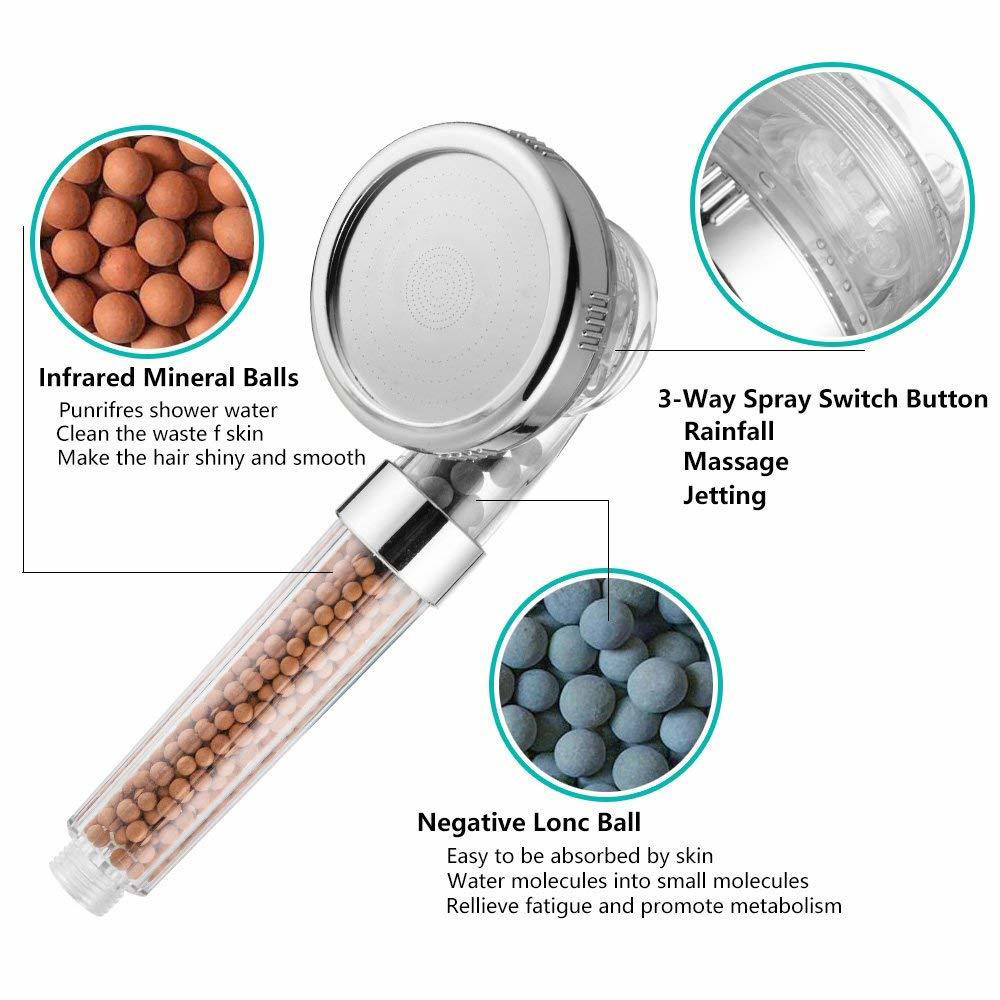
Addressing Common Concerns and Questions about Shower Head Filters
When considering a shower head filter for hard water, you might have some doubts. Here, we address the most common concerns and questions homeowners have.
- Do shower head filters for hard water really work? Yes, they effectively reduce minerals and other impurities. Your skin and hair can feel the difference.
- How do I know if my shower head filter is working? Check for improved water quality. Softer skin, less residue, and clearer water are good signs.
- Can a filter affect water pressure? Some filters may slightly reduce pressure. However, many are designed to maintain strong flow while filtering.
- Are these filters easy to install? Most are user-friendly. They screw onto your existing shower arm. Follow the installation tips provided earlier in this blog.
- How often should I replace the filter? This varies with use and water quality. Generally, replace every 3 to 6 months as advised by the manufacturer.
- Will I save money in the long run? Yes, by preventing mineral build-up, you reduce plumbing costs. Plus, you’ll see savings from using fewer cleaning products.
- What if my water is very hard? Consider filters designed for high mineral levels. Look at resin or dual-stage filters for better results.
- Why might my filter not be working as expected? It might be time for a replacement. Or it’s not suited for the mineral content of your water. Always match the filter to your specific needs.
By understanding these aspects, you can ensure your shower head filter for hard water meets your expectations and improves your daily routine.
